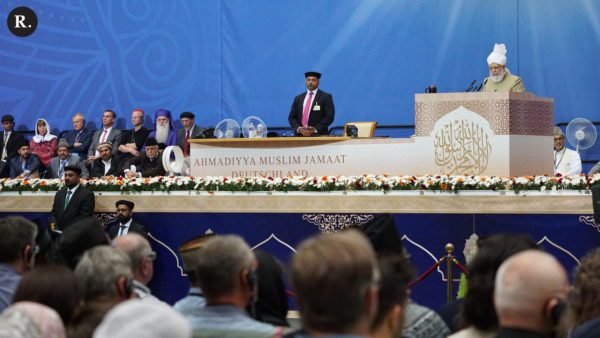
June 20th marks World Refugee Day in the world, when the international community celebrates the stories, contribution and bravery of people who have suffered immensely but still have a progressive view on life.
The latest UNHCR figures show that over 68.5 million people have been forcibly displaced from home due to persecution (including religious persecution), natural disasters, conflict and human rights violations, and some are migrating for economic reasons as they cannot sustain themselves where they reside and seek a better life. Last year, this number was rising at a rate of 44,400 every day (UNHCR). The total figure for displaced people is more than the entire population of many countries in the world and includes some of the most vulnerable women and children in society who become open to exploitation.
Being forced to flee your home is not uncommon to people of religion. Many flee their homes for the freedom of faith. Indeed, in the history of religion, many prophets have had to take the same course. Abraham(as) left Mesopotamia with Lot(as) because of their monotheistic beliefs. Moses(as) fled Egypt with the Jewish tribes in the Exodus after persecution at the hands of Pharoah. Jesus(as) had to flee Jerusalem due to hostility and persecution from orthodox Jewish leaders at the time. Muhammad(sa) fled Makkah to the safety of Madinah in a journey called the Hijrah after his followers were tortured and killed by the pagan Arabs of the time. Many of the early Muslims also went to Abyssinia where the local Church leaders provided them with a safe haven.
In each case, the host communities that they sought shelter with provided them with security, shelter and provisions in a decent manner. The Holy Qur’an also guides on migration to flee persecution:
“And whoso emigrates from his country in the cause of Allah will find in the earth an abundant place of refuge and plentifulness.”
(Holy Qur’an, Ch.4: V.101)
As this verse suggests, there is no shortage of resources on the earth to sustain all of mankind.
In another verse, The Qur’an describes how the righteous of Madinah treated refugees arriving from other parts of Arabia:
“And those who had established their home in this city before them and had accepted faith, love those who came to them for refuge, and find not in their breasts any desire for that which is given them (Refugees), but prefer the refugees to themselves, even though poverty be their own lot. And whoso is rid of the covetousness of his own soul – it is these who will be successful.”
(Holy Qur’an, Ch.59: V.10)
It is our duty to look at the underlying causes as well as provide shelter and security for these people. As has become obvious in recent years, even people who feel secure in modern high income societies are not immune from this. However, the response to the refugee crisis cannot be laid at the door of one or two nations. Rather it should be a collective response with shared responsibilities and cognisant of the increased risk and scrutiny needed. However we respond, it should be firstly with humanity and dignity.
Speaking on this topic, His Holiness Hazrat Mirza Masroor Ahmad, the Supreme Head of the Worldwide Ahmadiyya Muslim Community says:
“We believe that whoever is deprived or in danger should be given the opportunity to live his or her life with true freedom.”
He further said:
“The truth is that no single country, and in fact no continent, has the capability to absorb the millions of people who are fleeing their war-torn countries. Thus, the only solution is to formulate a genuine framework for peace in their countries of origin and to try and bring an end to the cruelty in their homelands[i]”
More about the author:
Fazal Ahmad has been on the Editorial team of the Review of Religions since 1993 and currently is the Editor for Ancient Religions & Archaeology. He is also the Operations Director for the NGO Humanity First


Add Comment